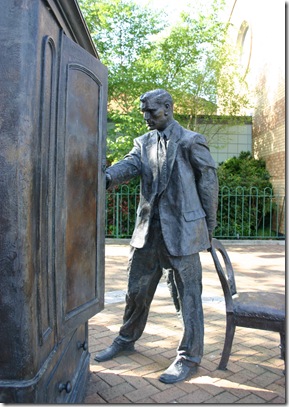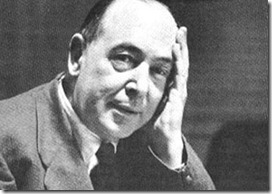 Did you ever think, when you were a child, what fun it would be if your toys could come to life? Well suppose you could really have brought them to life. Imagine turning a tin soldier into a real little man. It would involve turning the tin into flesh. And suppose the tin soldier did not like it. He is not interested in flesh: all he sees is that the tin is being spoilt. He thinks you are killing him. He will do everything he can to prevent you. He will not be made into a man if he can help it. [Note: Perhaps, we could better imagine a stubborn plastic action figure ;) ]
Did you ever think, when you were a child, what fun it would be if your toys could come to life? Well suppose you could really have brought them to life. Imagine turning a tin soldier into a real little man. It would involve turning the tin into flesh. And suppose the tin soldier did not like it. He is not interested in flesh: all he sees is that the tin is being spoilt. He thinks you are killing him. He will do everything he can to prevent you. He will not be made into a man if he can help it. [Note: Perhaps, we could better imagine a stubborn plastic action figure ;) ]
What you would have done about that tin soldier I do not know. But what God did about us was this. The Second Person in God, the Son, became human Himself: was born into the world as an actual man—a real man of a particular height, with hair of a particular colour, speaking a particular language, weighing so many stone. The Eternal Being, who knows everything and who created the whole universe, became not only a man but (before that) a baby, and before that a foetus inside a Woman’s body. If you want to get the hang of it, think how you would like to become a slug or a crab.
The result of this was that you now had one man who really was what all men were intended to be: one man in whom the created life, derived from His Mother, allowed itself to be completely and perfectly turned into the begotten life. The natural human creature in Him was taken up fully into the divine Son. Thus in one instance humanity had, so to speak, arrived:
had passed into the life of Christ. And because the whole difficulty for us is that the natural life has to be, in a sense, ‘killed’, He chose an earthly career which involved the killing of His human desires at every turn—poverty, misunderstanding from His own family, betrayal by one of His intimate friends, being jeered at and manhandled by the Police, and execution by torture. And then, after being thus killed—killed every day in a sense—the human creature in Him, because it was united to the divine Son, came to life again. The Man in Christ rose again: not only the God. That is the whole point. For the first time we saw a real man. One tin soldier—real tin, just like the rest—had come fully and splendidly alive.
Quotes from Mere Christianity, Part 70
C.S. Lewis, Mere Christianity (1952; Harper Collins: 2001) 179-180.




















